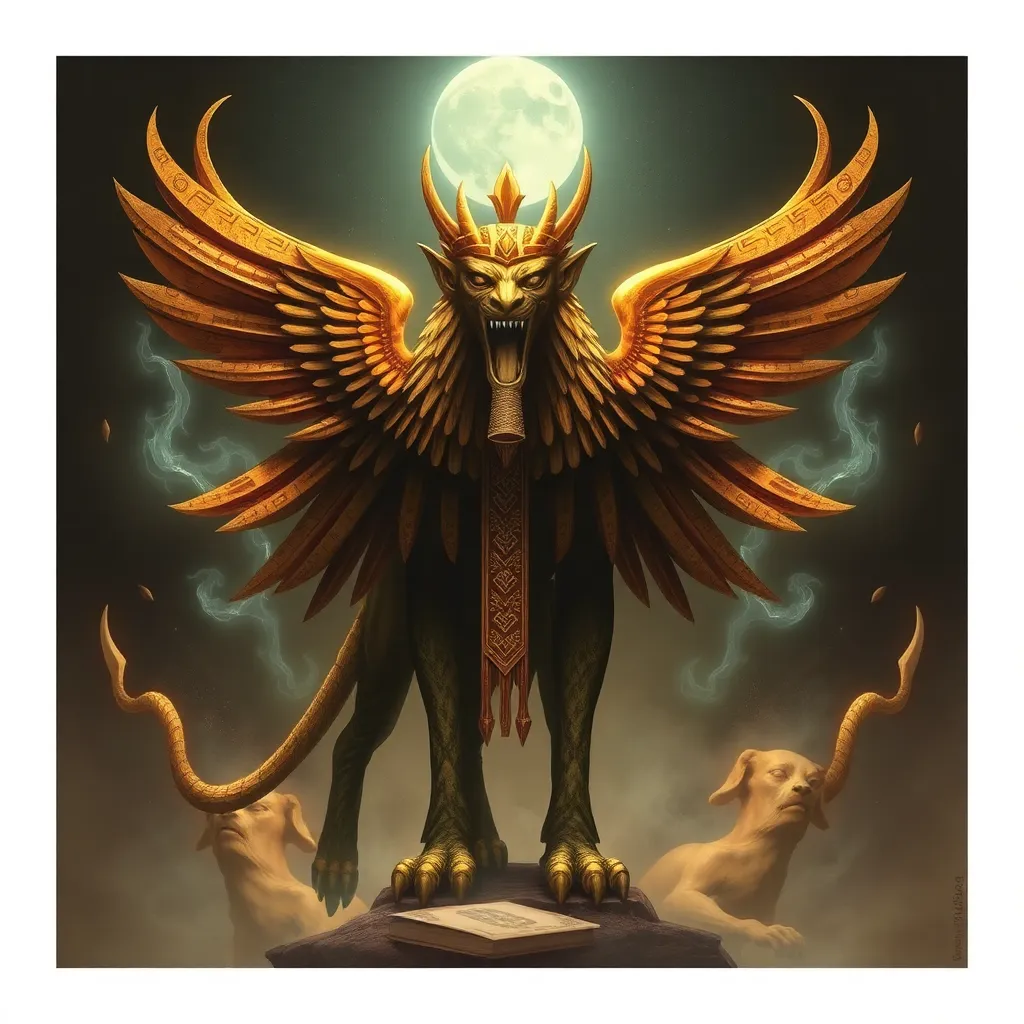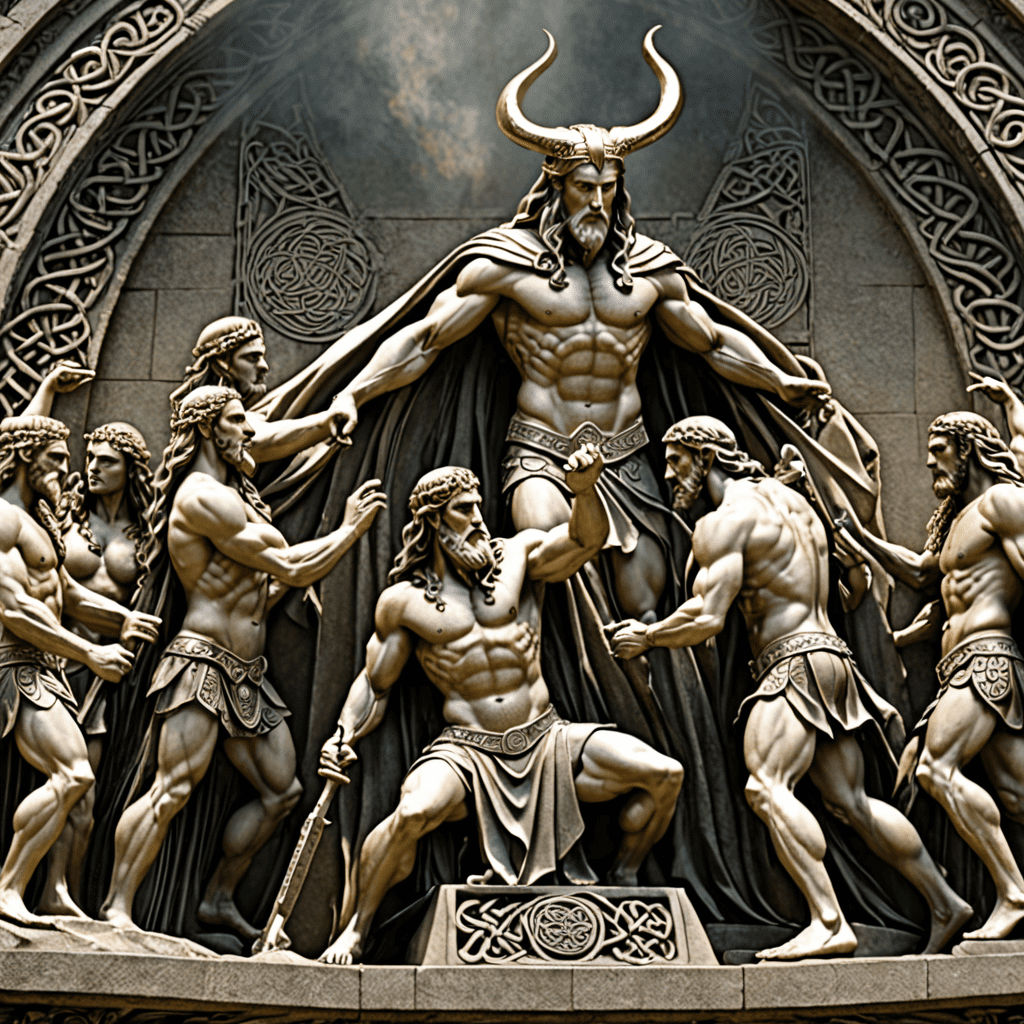From Atlantis to Armageddon: Myths of the End Times
I. Introduction
The term “End Times” refers to a collection of myths, prophecies, and narratives predicting the ultimate fate of the world and humanity. These stories often depict cataclysmic events leading to the transformation or annihilation of civilization as we know it.
Throughout history, cultures worldwide have developed their interpretations of the End Times, each reflecting their unique beliefs, fears, and aspirations. Whether through religious texts, folklore, or modern media, these myths have shaped societal values and influenced human behavior.
This article aims to explore the origins, narratives, and modern interpretations of End Times myths, examining their significance across different cultures and disciplines.
II. The Origins of End Times Myths
End Times myths can be traced back to ancient civilizations, where they often served as cautionary tales or reflections of societal anxieties. Historical perspectives reveal that these beliefs were not merely fanciful; they were deeply rooted in the human experience of uncertainty and change.
- Historical perspectives on apocalyptic beliefs: Many ancient texts, including the Epic of Gilgamesh and the Vedas, contain references to cataclysmic events and the end of civilizations.
- The role of religion and spirituality: Religious narratives, particularly in Christianity, Judaism, and Islam, have profoundly influenced apocalyptic beliefs, framing them within a moral and spiritual context.
- Anthropological insights: Myths of the End Times often reflect societal fears, such as war, famine, and natural disasters, highlighting humanity’s struggle to find meaning amidst chaos.
III. The Legend of Atlantis
The story of Atlantis, as recounted by Plato, describes a magnificent civilization that ultimately fell from grace and sank into the ocean. This tale has captured the imagination of countless generations and has been interpreted in various ways.
- Plato’s account: In his dialogues “Timaeus” and “Critias,” Plato describes Atlantis as a powerful and advanced society that succumbed to hubris and moral decay.
- Interpretations as metaphor: Atlantis has often been viewed as a metaphor for lost civilizations, representing humanity’s fear of decline and the consequences of moral failure.
- Connections to modern fears: The myth of Atlantis resonates with contemporary apocalyptic fears regarding environmental degradation, technological hubris, and societal collapse.
IV. Biblical End Times: The Book of Revelation
The Book of Revelation, the final book of the New Testament, is one of the most significant sources of apocalyptic imagery in Western culture. Its vivid descriptions of the end of the world have shaped religious thought and cultural narratives.
- Overview of apocalyptic imagery: Revelation presents a series of visions, including the Four Horsemen, the Great Tribulation, and the ultimate battle between good and evil.
- Significance of prophecies: Throughout history, interpretations of Revelation’s prophecies have varied widely, influencing theological discourse and end times movements.
- Impact on contemporary culture: The themes of Revelation have permeated literature, art, and popular culture, often serving as a lens through which people view current events.
V. Eastern Perspectives: Hindu and Buddhist Apocalyptic Visions
Eastern philosophies offer unique perspectives on the concept of the end of the world, often emphasizing cyclical time rather than linear progression toward an ultimate conclusion.
- Hindu cyclical time: In Hinduism, time is viewed as cyclical, comprising vast epochs known as Kalpas and Yugas, each characterized by different qualities and moral states.
- Buddhism’s future visions: Buddhism speaks of Maitreya, the future Buddha, who will arrive to restore dharma and bring about a new era of enlightenment.
- Comparative narratives: While Western narratives often focus on finality and judgment, Eastern beliefs emphasize rebirth and renewal, illustrating a different approach to the concept of “end.”
VI. The Role of Folklore and Mythology in Shaping Apocalypse Narratives
Folklore and mythology play a crucial role in shaping societal beliefs about the apocalypse. Across cultures, various myths have emerged, each reflecting the unique fears and values of their societies.
- Global myths: Many cultures have myths concerning the end of the world, such as the Norse Ragnarok or the Hopi Prophecies, illustrating a universal human concern about existential threats.
- Influence of folklore: Folklore often serves to reinforce societal norms and values, providing moral lessons about the consequences of humanity’s actions.
- Indigenous cultures: Many indigenous cultures have rich traditions of apocalypse narratives that emphasize harmony with nature and the cyclical nature of existence.
VII. Modern Interpretations of Apocalypse: Literature and Media
In contemporary society, apocalypse narratives have proliferated in literature and media, reflecting modern anxieties and fears.
- Apocalyptic themes in literature: Works such as George Orwell’s “1984” and Cormac McCarthy’s “The Road” explore themes of societal collapse and human resilience in the face of disaster.
- Portrayal in films and television: Shows like “The Walking Dead” and movies like “Mad Max” depict dystopian futures and the struggle for survival, often commenting on real-world issues.
- Media’s influence: The portrayal of apocalypse in popular culture shapes public perceptions, often blurring the lines between fiction and reality.
VIII. Scientific Perspectives on Apocalypse: Climate Change and Beyond
As humanity grapples with pressing global issues, scientific perspectives on potential catastrophes have become increasingly relevant.
- Role of science: Scientific research informs discussions about potential global catastrophes, emphasizing the importance of evidence-based approaches to understanding risks.
- Climate change as narrative: Climate change is often framed as a modern apocalyptic narrative, warning of dire consequences if humanity fails to act.
- Other theories: Various scientific theories, including asteroid impacts and pandemics, contribute to discussions about the potential end of human civilization.
IX. Psychological and Sociological Implications of End Times Beliefs
The beliefs surrounding End Times myths have profound psychological and sociological implications. These narratives can shape individual and collective behaviors and attitudes toward life and death.
- Impact on mental health: Apocalyptic beliefs can lead to anxiety, despair, or even nihilism, affecting mental health and well-being.
- Psychology of fear and hope: The juxtaposition of fear and hope in the face of potential catastrophe often drives people to seek meaning and purpose.
- Role of community: Shared beliefs about the End Times can foster community solidarity or division, influencing social structures and relationships.
X. Conclusion
From the myth of Atlantis to the prophecies of the Book of Revelation, End Times narratives reflect humanity’s deepest fears and aspirations. These myths serve not only as warnings but also as reflections of our values and beliefs about the world. As we navigate contemporary challenges, understanding these narratives can provide insights into our collective psyche and guide us toward a more hopeful future.




